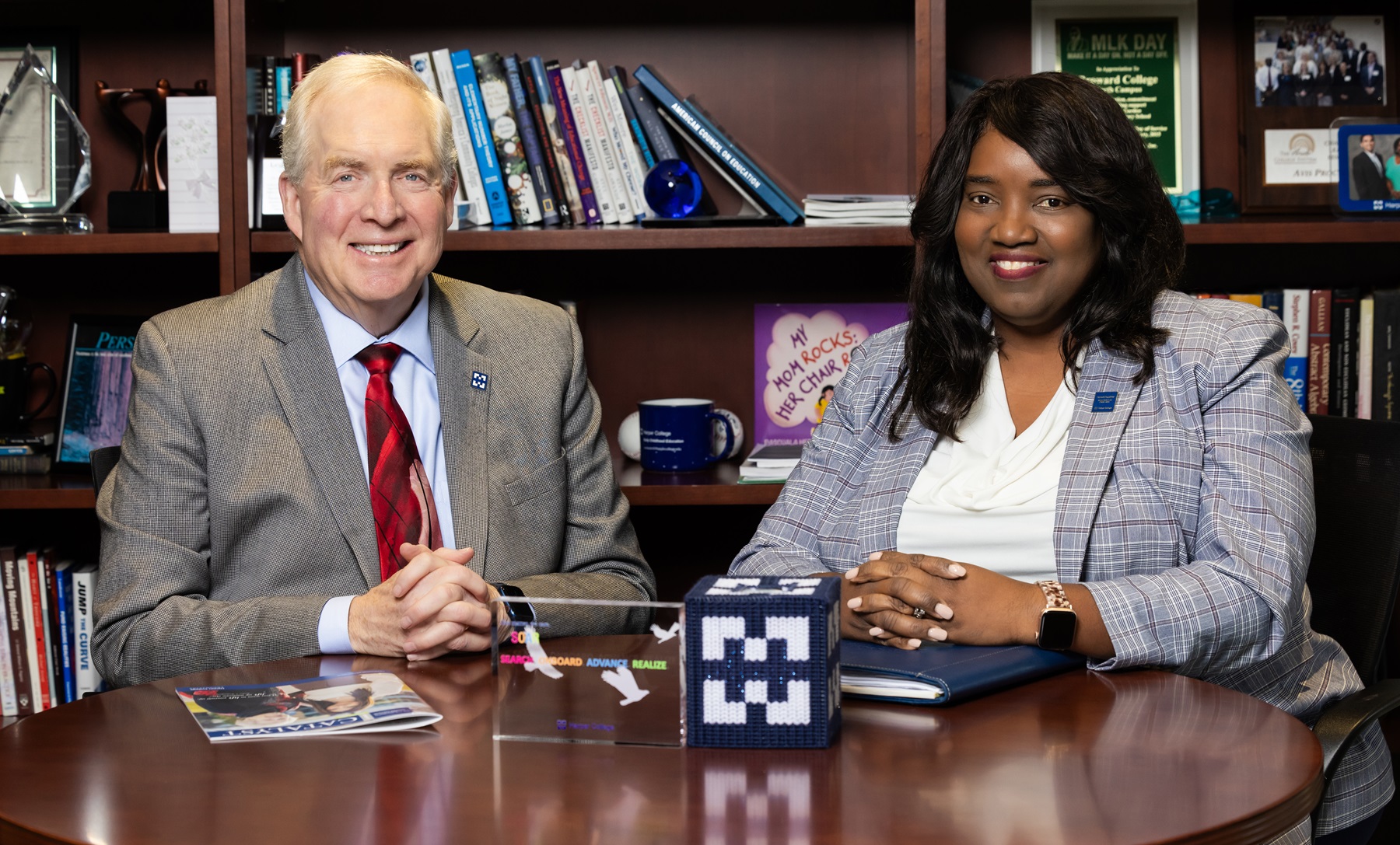Harper College will be closed on Wednesday, February 12 in observance of Lincoln's Day.

 Dr. Avis Proctor, Harper College president, and Bill Kelley, chair of the Harper College
Board of Trustees, recently collaborated on a guest opinion piece for the Daily Herald, closing out Community College Month while highlighting the crucial role our colleges
play in supporting our communities, addressing workforce needs and building thriving
communities:
Dr. Avis Proctor, Harper College president, and Bill Kelley, chair of the Harper College
Board of Trustees, recently collaborated on a guest opinion piece for the Daily Herald, closing out Community College Month while highlighting the crucial role our colleges
play in supporting our communities, addressing workforce needs and building thriving
communities:
Over the last month, many celebrated Community College Month and reflected on the generational impact and opportunity community colleges bring to our communities. We provide affordable, high-quality education, pathways to bachelor’s degrees, and workforce development in collaboration with regional employers. The nation’s 1,000-plus community colleges serve nearly 12 million students with an innovative, responsive and entrepreneurial spirit that serves so many in our communities who need us the most. Looking to the future of community colleges and higher education, we believe there are three key issues where we can have major community impact for our students and their families: workforce Pell, community college baccalaureate degrees and emerging technologies, such as artificial intelligence and quantum information science and technology fields.
The time is now for workforce Pell. Federal Pell grants are awarded to students with exceptional financial need; however, short-term workforce training programs are not currently eligible. As technology drives rapid change within all industries, employers need skilled workers who can quickly adjust to rapidly changing labor market demands. Those workers need financial support to pursue the short-term credentials required for these positions. Workforce Pell, which has major bipartisan support, can help address this issue. Congress needs to act on any one of the workforce bills before it’s too late. This is a simple, clear strategy that supports students and employers. And when coupled with tools like the community college baccalaureate, it will further enhance community colleges’ effectiveness.
Right now, 24 states in the country offer community college baccalaureate (CCB) degrees, an option for higher education that we know creates access to the bachelor’s degree for underrepresented and adult students and addresses critical workforce needs. Unfortunately, Illinois is one of those states that is yet to offer CCBs despite the tremendous opportunity to help our communities. Illinois has approximately 1.7 million adults 25 and older with some college, but no degree, and approximately 3.1 million adults who have only a high school diploma, GED or less. And we have the 11th largest gap of any state in bachelor’s degree attainment between African American and white adults and the 7th largest gap for Latine adults as compared to white adults. Further, of adults 25 or older who transfer to a four-year college or university, only 6% earn a bachelor's degree within six years.
Community colleges can “live in the workforce gap” and drive economic growth with CCB graduates in select fields and empower working adults and their families. Across our nation, we need to recognize the power of CCBs to address the moral and economic imperative before us and not leave out a significant portion of our adult population, including those who cannot leave their local communities for education and training.
While CCBs will help address access and equity issues in our system, we will also need to turn our attention to creating academic programs to train the workforce needed to support emerging technologies. From artificial intelligence to cloud computing, the workforce of technicians and others needed by our employers and industry partners will require us to demonstrate the nimbleness for which community colleges are known. This is especially true for quantum technology, which we believe is our “Sputnik” moment. The way we live, work and strengthen national security will be dramatically changed by quantum technology solutions such as fraud detection and grid resilience. In Illinois, Governor JB Pritzker has prioritized quantum in his FY25 budget making a $500 million request to the General Assembly to support our work here. Meanwhile, Harper is partnering with City Colleges of Chicago and Chicago Quantum Exchange through the Bloch Quantum Tech Hub on an application for Phase 2 funding through the U.S. Economic Development Administration (EDA) Regional Technology and Innovation Hub program. If awarded, this will help us develop a regional education network to develop the programs needed to educate and fulfill the demand for quantum technicians.
As so many times before in our nation’s history, we’ve arrived at another critical moment where community colleges can deliver the solutions needed to empower our students, address employers’ challenges and help build thriving communities. Join us in meeting that moment!